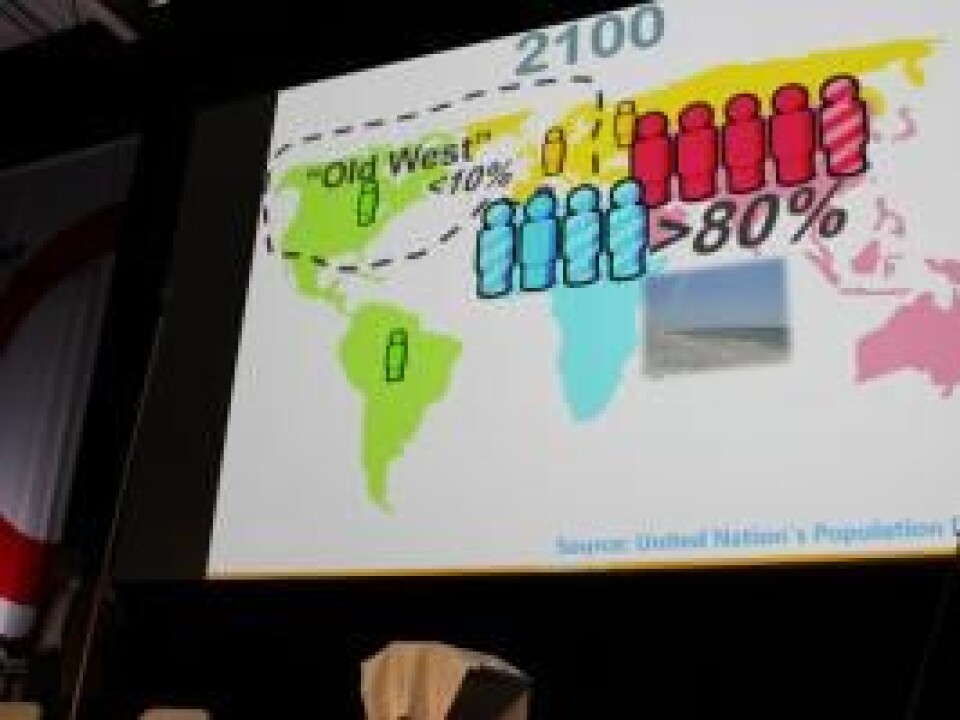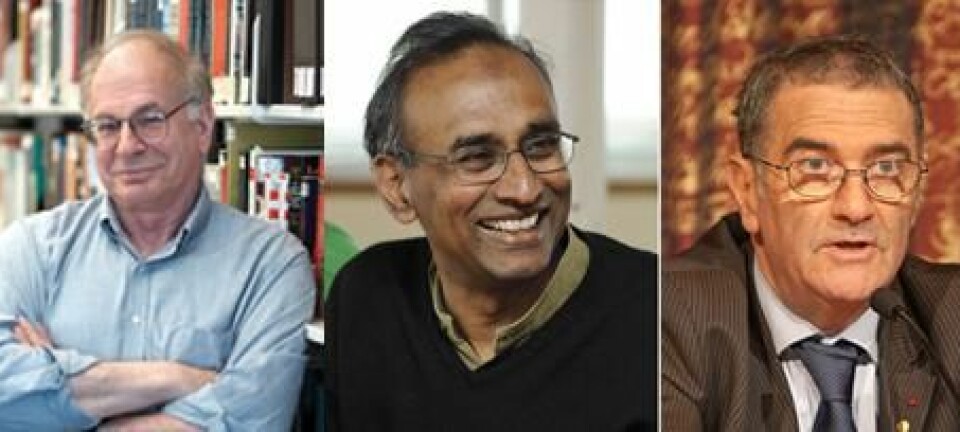
Professor: we must tackle population growth with knowledge
World population will keep climbing until it reaches 15 billion - but then it stops, says professor Hans Rosling.
The world population is growing. The poorest countries are falling helplessly behind the industrialised countries. With so many mouths to feed, how will we find enough food?
The charismatic Swedish professor Hans Rosling and his fact-based worldview don’t have all the answers – but he does know what needs to be done.
First and foremost the world population needs to break down a lot of myths and ideas about the way the world looks. And then the Western world needs to dispose of the ‘arrogant and ignorant’ attitude towards the world’s poorest countries.
Rosling is professor of International Health at the Swedish medical university Karolinska Institutet and has a background in medicine and statistics. He is also the co-founder of the non-profit foundation Gapminder, which disseminates fact-based population analyses and translates data about the world economy, medicine and energy into readily understandable graphics.

At ESOF2014 Rosling gave a keynote speech based on his own work, giving a ‘humorous, yet deadly serious’ presentation of the true state of the world population.
Deflated myths using pointer as spear
Rosling started out by puncturing what he believes to be the biggest myth about population growth and health – using an oversized pointer the shape of a computer cursor.
“The number of new-born babies has stopped growing. And that’s due to a change that’s already taken place: now it’s no longer the cemetery that controls population growth – it’s the bedroom,” he said.
That means that – with the exception of a few African countries – babies are being born because the urge is there in the bedroom, and not just because a lot of children end up in the cemetery.

During the old paradigm – around the beginning of the nineteenth century – women had around six children on average worldwide, of which an average of two wouldn’t live very long. Today women have an average of two children and very few die.
According to Rosling, two children per woman is a magically natural number for women in all the countries that have established a certain standard of living. Two children will mean that world population will only just maintains its size.
The Western world makes up less than 10 percent of the world population in 2100
With an average of two children per woman, the number of people on earth won’t grow exponentially, contrary to what many authorities predict. Right now there are seven billion people on earth, but there will definitely never be more than 15 billion, according to Rosling. We’ve hit the level he calls ‘peak child’, which will eventually flatten out the growth.
“Right now the world population is distributed with one billion in South and North America, one billion in Europe, one billion in Africa and four billion in Asia. That gives the code 1114. In 2100 the code will probably be 1145,” Rosling explained, meaning that around 80 percent of the world population lives in Africa and Asia.
“In the future the old Western world – Europe and North America – will account for less than 10 percent of the world population. We’ll become a museum which people from the rest of the world will fly in to see,” Rosling joked.
Whether the numbers will be prove to be right, depends on various factors, but according to Rosling the two most significant factors are:
- Extreme poverty needs to be tackled, because areas with extreme poverty have the highest birth rates. The country with the biggest population growth is Congo, which also has the highest infant mortality rate.
- The Asian gender roles must be preserved. When Asian women are working, they have fewer children.
Rosling finished his speech by saying that it is possible to fight poverty. Things are moving in the right direction and within 20 years it could be completely gone – if the political will is there and researchers break down the many myths.
Forcing through an end to population growth would be like the Holocaust
In his keynote speech Rosling explained that he is often met by the opinion that the easiest solution to the world’s problems would be to put an end to population growth in the so-called developing countries.
“It shouldn’t be okay to say that we should stop population growth at eight billion. If it’s not okay to deny that the Holocaust ever happened, it shouldn’t be okay to suggest it,” he said.
According to Rosling, suggesting that it’s okay to put an end to population growth is a sign of the enormous ignorance and stupidity that characterises the approach that many people in the Western countries take to population growth in places such as Africa.
But the dream of regulating the less developed countries reaches beyond reducing population growth. As a general rule, the political leaders of the Western countries and the researchers try to make sure that developing countries don’t get the same rights and opportunities as the industrialised countries, according to Rosling.
“The Western world keeps saying ‘the developing countries shan’t make the same mistakes as us, it’ll never work’, instead of actually correcting the mistakes of the Western world. Our mistakes become an excuse to deny hardworking countries the opportunity to create growth and achieve better health,” he says.
For instance, there are Western NGOs that aim to base the energy consumption of the world’s poorest countries on 100 percent wind power and solar energy, which is a ridiculous aim, considering that they account for just 1 percent of the world’s total energy consumption, and the Western world generally can’t claim to be at the forefront of that development.
---------
Read the original story in Danish on Videnskab.dk
Translated by: Iben Gøtzsche Thiele











